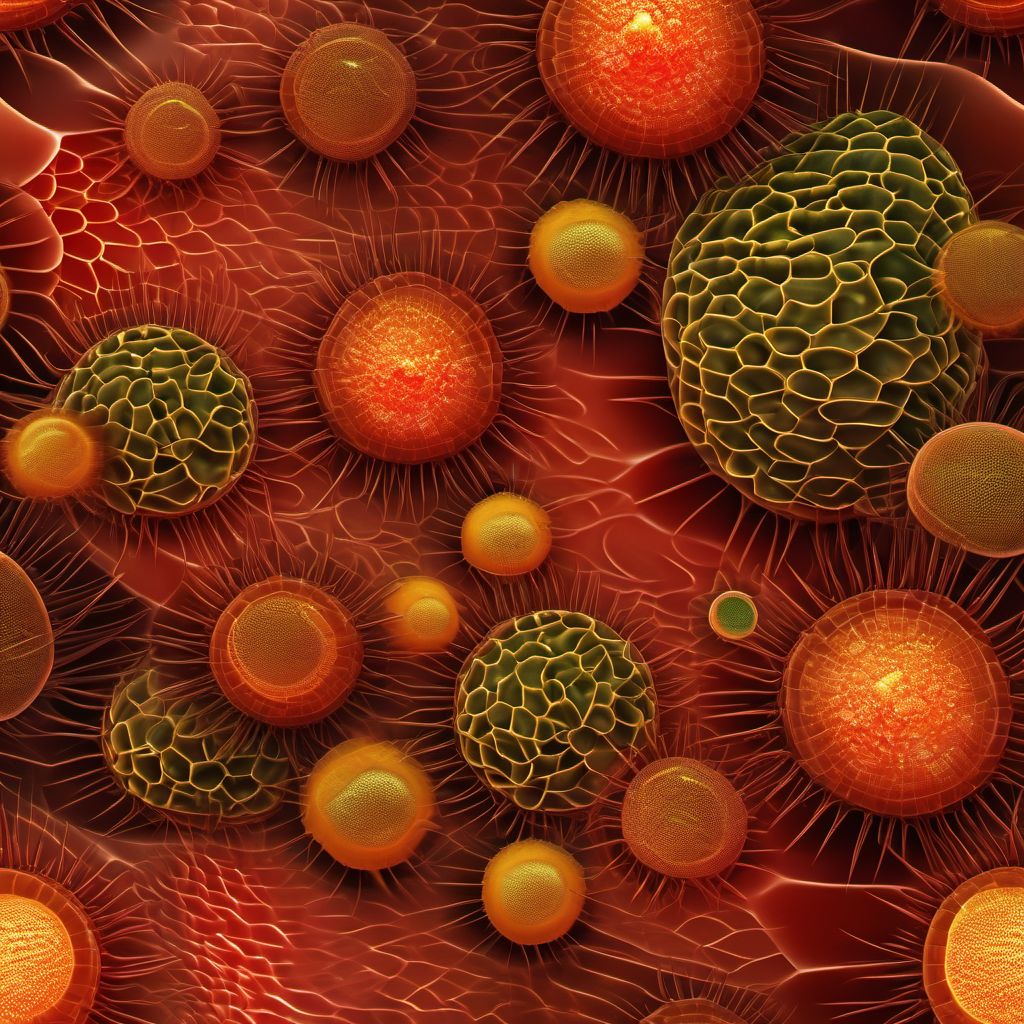
Other protozoal intestinal diseases Save
ICD-10 code: A07
Chapter: Certain infectious and parasitic diseases
Other Protozoal Intestinal Diseases
Protozoal intestinal diseases are caused by single-celled organisms that can infect the human intestine. While some of these diseases, such as giardiasis and cryptosporidiosis, are well-known, there are other protozoal intestinal diseases that are less common but are still significant health concerns. Here are some of the other protozoal intestinal diseases that you should know about:
- Amebiasis: Amebiasis is caused by the protozoan parasite Entamoeba histolytica. This disease is transmitted through the ingestion of contaminated food or water. Symptoms may include abdominal pain, diarrhea, and blood in the stool. In severe cases, amebiasis can cause liver abscesses, a condition that requires immediate medical attention.
- Cyclosporiasis: Cyclosporiasis is caused by the protozoan parasite Cyclospora cayetanensis. This disease is usually acquired by ingesting contaminated food or water. Symptoms include watery diarrhea, fatigue, and weight loss. Cyclosporiasis is usually treated with antibiotics.
- Isosporiasis: Isosporiasis is caused by the protozoan parasite Isospora belli. This disease is usually acquired by ingesting contaminated food or water. Symptoms include diarrhea, abdominal pain, and weight loss. Isosporiasis can be treated with antibiotics.
- Blastocystosis: Blastocystosis is caused by the protozoan parasite Blastocystis hominis. This disease is usually acquired by ingesting contaminated food or water. Symptoms may include diarrhea, abdominal pain, and fatigue. Blastocystosis is usually treated with antibiotics.
- Cryptosporidiosis: Cryptosporidiosis is caused by the protozoan parasite Cryptosporidium parvum. This disease is usually acquired by ingesting contaminated water or food, or by contact with infected animals. Symptoms include diarrhea, abdominal pain, and fever. Cryptosporidiosis can be treated with antibiotics.
If you are experiencing symptoms of any of these protozoal intestinal diseases, it is important to seek medical attention as soon as possible. Your healthcare provider can perform diagnostic tests to determine the specific cause of your symptoms and recommend an appropriate course of treatment. Additionally, taking precautions such as washing your hands regularly and avoiding contaminated food and water can help prevent the spread of these diseases.